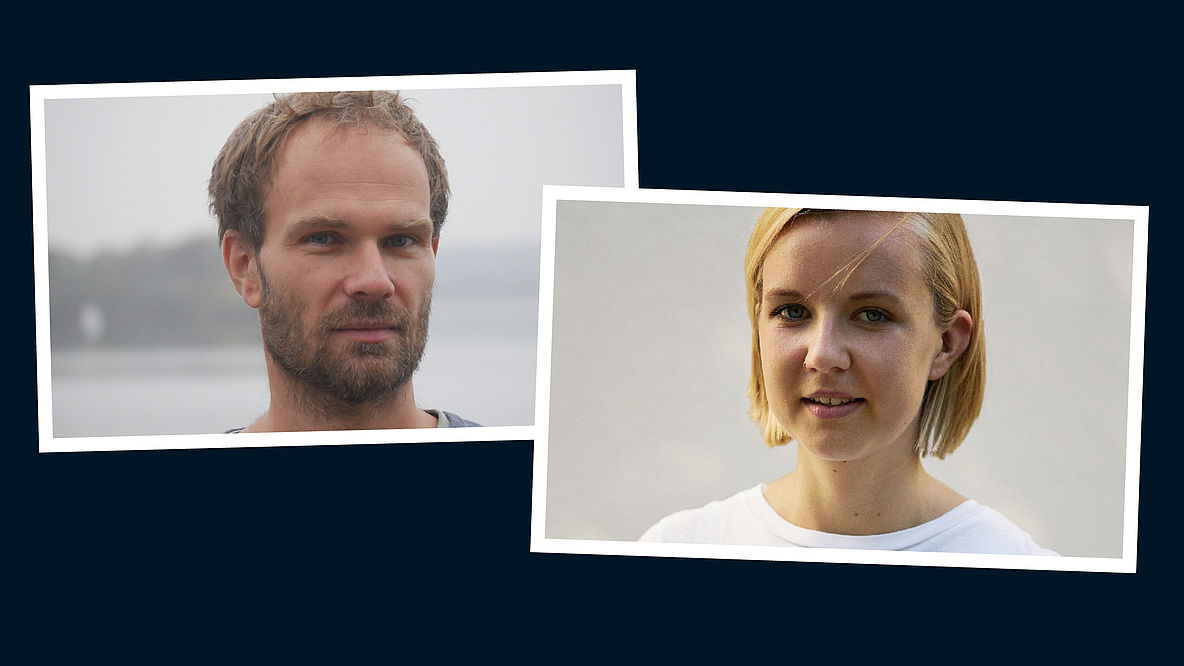"Bringing the others to the table"

Katharina Liesenberg and Linus Strothmann have written the book "We will pick you up! How we bring real diversity to democracy through citizens' assemblies and random selection". We asked them a few questions about it.
Question: Katharina and Linus, you have written a book together about citizens' assemblies. What is it about?
Katharina Liesenberg: It's about making random selection better through sortition by door knocking. When we met two years ago, we realised that we have one thing in common: We are not satisfied with how selection works in "normal" sortition procedures and have independently combined sortition with door knocking elements.
Linus Strothmann: Door knocking means that we really went to the people, asked them at the door what they needed in order to participate and thus came into contact with people who could not imagine it at first.
Liesenberg: The book is about exactly these experiences and methods. It is now time to make the next qualitative leap in sortition procedures.
Question: Why did you write the book?
Strothmann: Citizens' assemblies are often seen as a cure for the problems of representative democracy and are supposed to help inspire people, especially those who are averse to politics, to take part in democratic procedures. But what we should never forget: At present, the composition of most citizens' assemblies is heavily skewed, because only 5-10 per cent of those who were invited responded. That has to change. We show methods to bring the others to the table as well. Our experience shows that the group of 95 per cent who do not respond to an invitation letter includes very exciting people.
Liesenberg: We want to stimulate a debate about who actually participates and why or why not. And not only in citizens' assemblies, but in all political processes in general. You can only really find out if you talk to those who don't participate instead of just talking about them.
Question: You have already organised citizens' assemblies yourselves. What were they about and what did you learn from them?
Liesenberg: We have been involved in many different formats, whether at the local level or in the constituency or in an advisory capacity in nationwide formats. That's why we know a wide range of topics: from Germany's role in the world to climate policy in Frankfurt am Main, a new indoor swimming pool in Falkensee or the reorganisation of a huge city festival. What is important above all is the attitude - how serious are the organisers about participation? What happens to the results? Do they disappear in a drawer or can new political demands arise from them?
Strothmann: In addition, there are many experiences on practical methods of how to work well together in citizens' assemblies. That is also what the book is about.
Question: In a nutshell: Why should people read your book?
Liesenberg: Everyone who really wants to change democracy through citizens' assemblies should get to know the door knocking process. In the book, we not only give a lot of practical tips and examples, but also some theoretical insights into why it makes sense.
Strothmann: And we have tried to present many practical examples and little stories of people who did not react to an invitation letter at first and then took part and made a difference. These are exactly the kind of stories that are needed to convince people who do not yet believe in the power of random selection.
Liesenberg: And if that's not reason enough, there's also an exciting foreword by Peter Fox!
The book "We'll Pick You Up! How we bring real diversity to democracy through citizens' assemblies and random selection" can be ordered online from the publisher or downloaded.